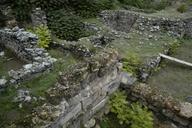Subject

photo credits: Wikimedia Commons
Thebes (; Greek: Θήβα, Thíva [ˈθiva]; Ancient Greek: Θῆβαι, Thêbai [tʰɛ̂ːbai̯]) is a city in Boeotia, Central Greece, and is one of the oldest continuously inhabited cities in the world. It is the largest city in Boeotia and a major center for the area along with Livadeia and Tanagra. It played an important role in Greek myths, as the site of the stories of Cadmus, Oedipus, Dionysus, Heracles and others. Archaeological excavations in and around Thebes have revealed a Mycenaean settlement and clay tablets written in the Linear B script, indicating the importance of the site in the Bronze Age. Thebes was the largest city of the ancient region of Boeotia and was the leader of the Boeotian confederacy. It was a major rival of ancient Athens, and sided with the Persians during the 480 BC invasion under Xerxes I. Theban forces under the command of Epaminondas ended Spartan hegemony at the Battle of Leuctra in 371 BC, with the Sacred Band of Thebes, an elite military unit of male lovers celebrated as instrumental there. Macedonia would rise in power at the Battle of Chaeronea in 338 BC, bringing decisive victory to Philip II over an alliance of Thebes and Athens. Thebes was a major force in Greek history prior to its destruction by Alexander the Great in 335 BC, and was the most dominant city-state at the time of the Macedonian conquest of Greece. During the Byzantine period, the city was famous for its silks. The modern city contains an archaeological museum, the remains of the Cadmea (Bronze Age and forward citadel), and scattered ancient remains. Modern Thebes is the largest town of the regional unit of Boeotia. Source: Wikipedia (en)
Narratives set in Thebes 3
Subject - wd:Q5760

